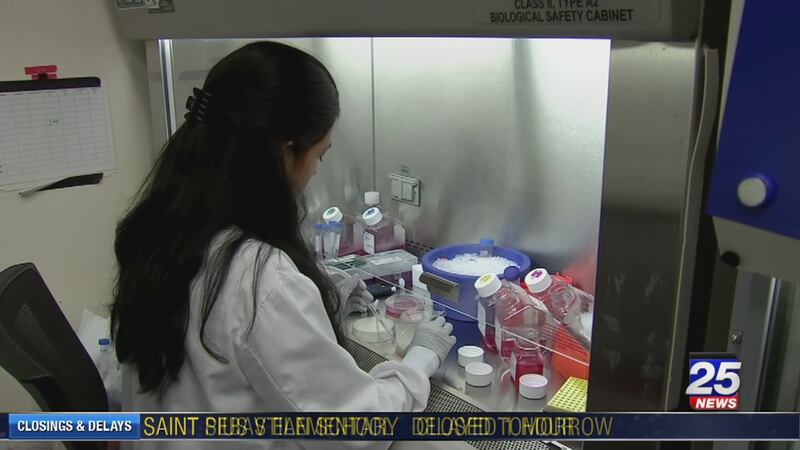BOSTON — Doctors and researchers at the Cancer Center at Beth Israel Deaconess Medical Center are on the cusp of a major breakthrough that could change how pancreatic cancer patients are treated.
The deaths of Apple CEO Steve Jobs and actor Patrick Swayze put a much needed spotlight on the disease, one of the deadlier forms of cancer.
Researchers tell FOX25 what they are doing could be a real game changer and give patients new hope.
A Patient’s Perspective
Karen Jenkins’ world turned upside-down in April when doctors at Beth Israel Deaconess diagnosed her with stage 2 pancreatic cancer.
“When I first found out about the diagnosis, the only thing I could say was I just don't want to die,” she told FOX25’s Gene Lavanchy.
Chemotherapy and radiation weakened her body but not her spirit.
“Never once did I give up hope,” she said.
The Amesbury native often thought of her young granddaughter and how there was so much she wanted to do with her. Her husband, Wendell, was by her side, as a caretaker and enforcer.
“This is what you have to do and we're going to get through it” he told her.
Jenkins knew research done on previous patients was the key in helping to win her battle, so when her surgeon told her about a research initiative that could help better diagnosis and treat future patients, she was all in.
“There was no hesitation at all. If there is anything I could to make anyone feel comfortable," she said.
Organoids: A “Gamechanger” for Cancer Treatment
Dr. Jim Moser is Jenkins' surgeon and the co-director of the Pancreas and Liver Institute at Beth Israel Deaconess Medical Center.
During surgery, he collected tissue samples from her tumor so researchers could grow living replicas of the tumor, called organoids, and test them for critical clues.
“Organoids give us the opportunity to tailor the treatment to the patients rather than having a one size fits all approach,” Dr. Moser said. “There are strides being made.”
According to the American Cancer Society, pancreatic cancer is the third leading cause of cancer deaths in the United States. More than 50,000 Americans will die of the disease this year. Often it's the kind of cancer that doesn't show symptoms until it's advanced. The 5-year survival rate is just under 8 percent.
Customizing Cancer Care
Dr. Senthil Muthswamy and his research team are fighting cancer in a petridish.
He took FOX25 on a tour of the research lab and showed how they are able to replicate a patient’s own tumor cells into a living three-dimensional organoid. On that organoid, they can directly test which drugs work before giving them to a patient.
“If you knew ahead of time which drug works best for the patient and the patient never has to go through the first treatment, it saves the patient a lot of grief from going through one treatment,” Dr. Muthuswamy explained.
It’s called precision medicine, customizing cancer care for each individual patient.
So far they have collected tissue samples from nearly two dozen patients. He said the data they gather on them could be a breakthrough for pancreatic cancer treatment.
“It is a gamechanger in the entire cancer care for the patient,” he said “My lab is sitting in a position where we can do something that can immediately impact the clinical outcome of a patient, I cannot be more excited than that now.”
He added that the experiment is just on pancreatic cancer but he believes it could be applied to other carcinomas like breast, colon and even lung.
Currently their research on organoids has not been put into practice on any patients, including Karen. They hope to that next step happens later this year.
As for Karen, she is wrapping up her chemotherapy treatments and is full of hope for what tomorrow will bring.
“I have a future now, I can plan my future,” she said.
Cox Media Group








